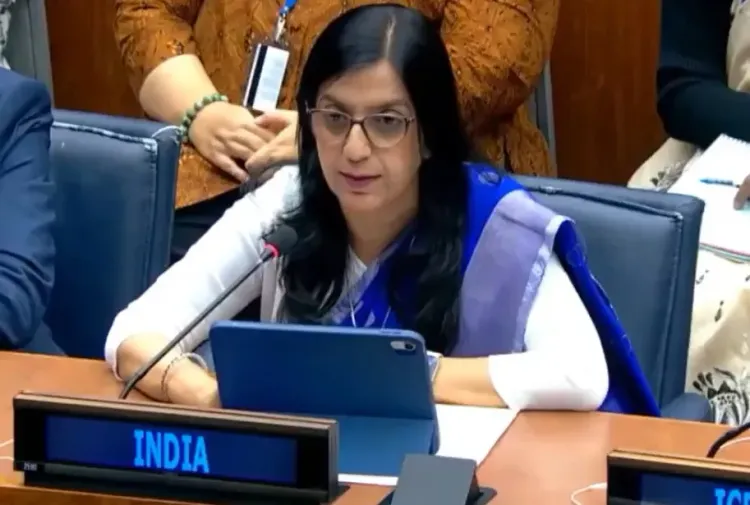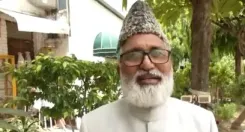India Advocates for Redesigning Global Financial Framework to Amplify Global South's Influence

United Nations, Dec 4 (NationPress) India has urged a transformation of the global financial system by enhancing the Global South's involvement in the management of institutions and increasing the lending capabilities of development banks.
On Tuesday, Geetu Joshi, an Advisor in the Department of Economic Affairs, stated, "The International Financial Architecture must be more responsive to the needs of developing countries."
"Expanding MDB [multilateral development banks] financing capacities along with greater synergy and cooperation within the MDB ecosystem is equally crucial," she said during the meeting of the Preparatory Committee for the Fourth International Conference on Financing for Development (FfD4).
Convened by the General Assembly, the FfD4 is scheduled to take place in Seville, Spain, in June to evaluate compliance with international commitments aimed at financing development and supporting the reform of the international financial architecture.
Highlighting the urgency for action, Deputy Secretary-General Amina Mohammed emphasized that the Sustainable Development Goals (SDG) "have stalled [and] they can only be rescued by unlocking the scale and quality of finance required to power investments" in developing nations.
To achieve this, "the grip of debt service that is crippling dozens of countries" must be loosened, and economies should be safeguarded "from the external shocks that characterize today's interconnected world," Mohammed stated.
Mohammed remarked that the FfD4 represents a significant opportunity to realize the vision for financial architecture reform outlined in the Pact for the Future adopted by world leaders in September.
"Let us tackle debt [of developing countries] with bold ambition, and establish a debt architecture that genuinely empowers sustainable development," she said.
Additionally, Mohammed suggested that the FfD4 should establish a "clear and actionable roadmap for expanding the capital bases of multilateral development banks."
Joshi noted that India's development model, which emphasizes "a human-centric approach to sustainable development," has successfully lifted 250 million people out of poverty and serves as a replicable model for the Global South.
She asserted that coordinated international action involving both developed and developing nations, as well as international institutions, is essential "to unlock the trillions of dollars needed for sustainable development."
Accelerating progress toward the UN's sustainable development goals "depends on strengthening global partnerships, especially South-South and triangular cooperation, to facilitate the exchange of knowledge, resources, and expertise," Joshi expressed.
To ensure affordable finance for development, she emphasized the necessity of a "conducive regulatory and policy environment."
Addressing the economic crises severely impacting the developing world, she stated, "We underscore the importance of a cohesive and collaborative international response to global shocks, with the UN at its center."
(Arul Louis can be contacted at arul.l@ians.in)








